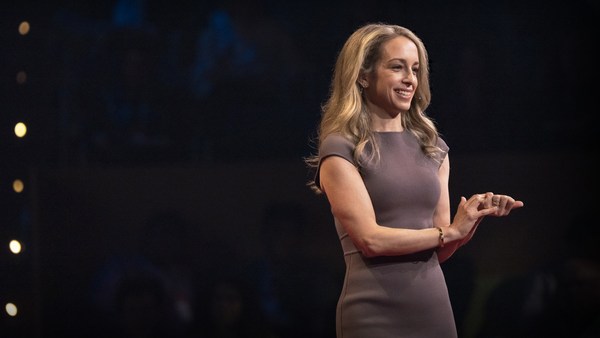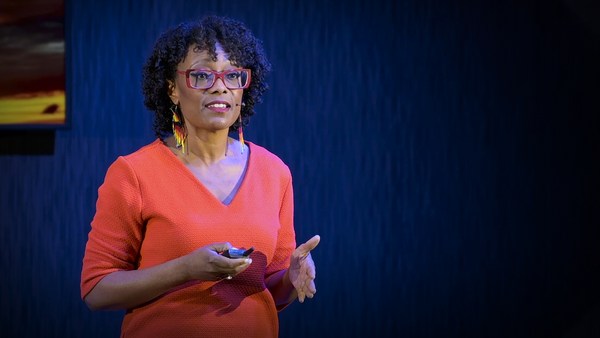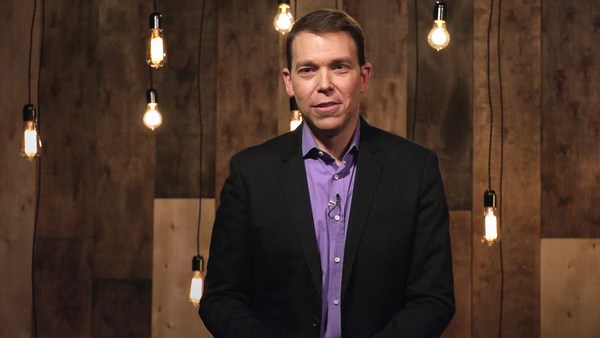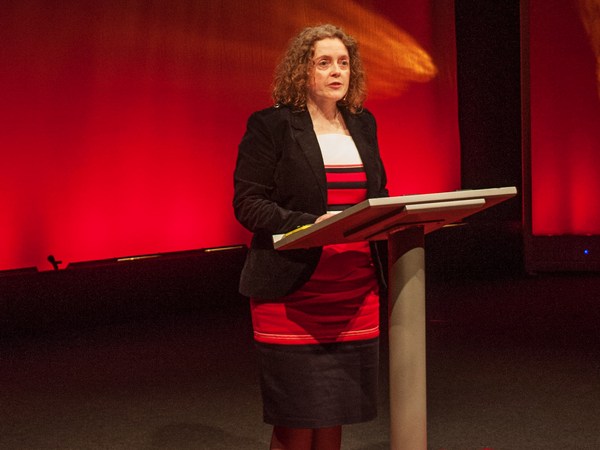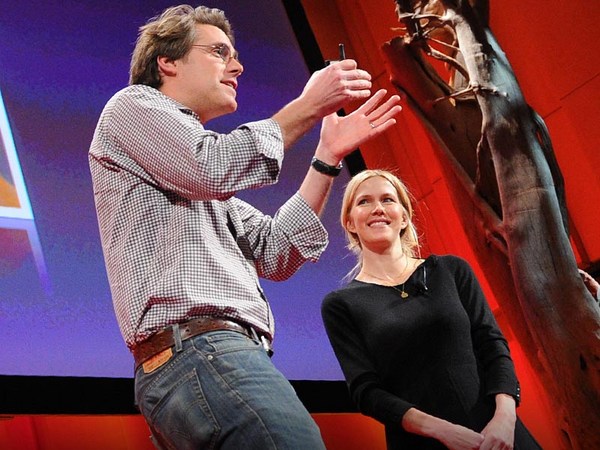It's not that there's anything wrong with parenting books, per se. It's just that they can be risky when they fall into the wrong hands. And when I say wrong hands, I mean parents.
(Laughter)
Specifically conscientious and dutiful parents, which is most parents. Here's the problem. If you're a parent, you're probably just fine the way you are. All you need to hear is: you've got this.
But everywhere you turn, experts tell you how complicated parenting has become. You should follow their advice on everything from putting your child to sleep to feeding them to playing with them, even though humans have somehow been doing this for millennia.
Parenting books run the risk of turning conscientious and dutiful parents into anxious and obsessive parents. What do I mean?
I'm a psychiatrist, and I have worked at Boston University's counseling center for nearly two decades. There's been a lot of hand-wringing about increasing anxiety among kids over the past decade or so. Experts have been lining up to explain why. It's cell phones or social media, or maybe an overreliance on therapy? Maybe. But what if there's a reason hiding in plain sight? What about parenting trends?
The experts have got parents tied up in knots. So much so that the aftermath trickles into my office. Here's what I mean.
Students tell me about parents monitoring their location on their cell phone and calling if they've ventured off campus or slept through class. They tell me about parents calling several times a day, then getting mad, or worried, when the busy student doesn't pick up. You can probably imagine how that goes.
A generation ago, the experts told parents to get more involved. The pendulum has swung so far in the other direction that it's causing new problems. So now we have experts telling parents the importance of being less involved.
What if all these experts just told parents to trust their instincts and do what feels right? It wouldn't sell many books.
(Laughter)
When it comes to managing teenagers, the relationship is everything. They need to feel like they can trust you with an important life decision or with a crisis. But they might not turn to you if they think it will cause an argument or make them more anxious.
All the chatter is making parents more anxious. Clinicians like me think anxiety is contagious and is particularly transmissible to small children. Conflict mostly comes later.
And these days, it's not just coming from books. Everywhere you turn, there's a social media influencer who's been a parent six months longer than you have, who is happy to sell parenting advice. Just click this link and pay 10 bucks, and you can watch her put her toddler down for a nap, just a little bit better than you do. Does anyone remember how editing works? I could make a T-Rex look like a baby whisperer --
(Laughter)
if I controlled the editing. So if parenting culture turns dutiful parents into anxious and obsessive parents, what's a busy psychiatrist to recommend?
Luckily, the perfect antidote to parenting angst already exists in a different section of your local bookstore. Puppy manuals!
That's right, a puppy manual is practically the perfect gift for a first-time parent. They contain everything a new family needs to know. They usually start with a section like this.
"Prepare your home. Create a space where they can explore safely, removing any items that might be damaged by body fluids."
(Laughter)
See what I mean? I couldn't have said it better myself.
(Laughter)
Puppy manuals usually emphasize the importance of making the bonding process go well. Like this.
"Don't be afraid to be yourself. A puppy can accept any human or any family structure if they feel safe and loved. Being consistent and predictable helps. Your puppy might have difficulty reading you at first, so use effusive displays of affection. Love them with abandon. It might seem like they don't love you back, but that's OK. They've got a lot to get used to. Not to mention an undeveloped brain. This also applies when they are teenagers.
(Laughter)
Use positive reinforcement. Reward desired behaviors clearly and just ignore everything else. Puppies don't understand punishment or criticism, and these may interfere with the bonding process. Dogs are descended from pack animals. If you leave your puppy alone too much when they are little, they might become sensitive to abandonment. And never frighten your puppy. Frightening your puppy might make them anxious or aggressive."
Huh? These puppy people are really on to something. Puppy manuals have quite a bit of information on growth and development, like this.
"Development is a biological imperative. It mostly just happens. Obsessing about developmental timelines is unlikely to be fun for you or your puppy. Expose your puppy to new things gradually, but do expose them to new things. They must learn to adapt to the human world, which is not a natural environment. And make sure your puppy gets plenty of sleep. They can't grow normally, learn well, or regulate their behavior without it. Plus, sleeping puppies are super cute.
Here's some guidance on your relationship with your puppy. Barking is normal. Some dogs are loud. Just take a break from them if you need it. You will eventually love them for their barking. Your puppy will probably never be interested in stories about your job or your views on politics.
(Laughter)
Don't worry about it. Play games with them. Isn't that why you got a puppy?"
(Laughter)
There's also helpful guidance about managing a puppy in contemporary society. Like this.
"Dogs have existed for millennia. Your puppy can probably survive without that plastic gadget being pushed by a social media influencer. Your puppy will probably never be chosen for the Westminster Dog Show.
(Laughter)
Most aren't, so don't worry about it. The Westminster Dog Show is mostly about having the right breeding. Besides, those competitions can make dogs neurotic and high-maintenance.
Someday your puppy might feel like chasing a bunny or playing with another dog. They will eventually prefer other dogs to you. That's OK. It doesn't mean they don't love you. It means they have a secure attachment. A secure attachment is the foundation for healthy exploration during puppyhood and optimal mental health during adulthood."
There you have it. Everything new parents need to know can be found in a puppy manual. Happily, it's mostly stuff that reasonable people already know. You are the only parenting expert your child needs. You are quite literally evolved for this.
So I'll say it again. You've got this.
Thank you.
(Applause and cheers)
